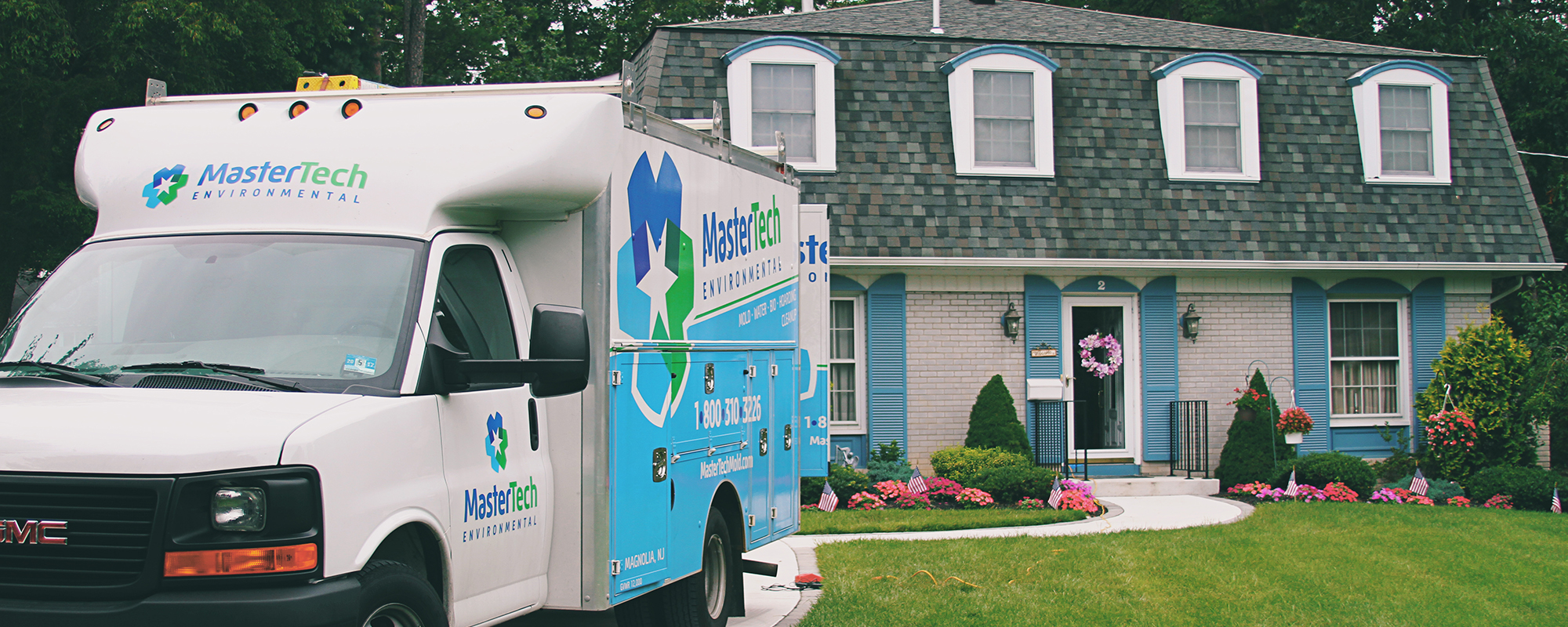 The Consequences of Water Damage
The Consequences of Water Damage
It’s safe to assume that nobody wants their home to experience water damage. However, it is more common than most would probably prefer. If you discover water damage in your home, you may want to simply ignore it or cover it up. Avoiding signs and causes of water damage will only worsen the issue. Mold and mildew can easily emerge if still-standing water is left to its own devices. Unaddressed or poorly addressed water damage can lead leave you with serious property damage that will require expensive repair. Once you become aware of the damage, it is imperative that you take care of it as soon as possible. Water damage can lead to extreme consequences and always seems to pop up at the worst times. With all the heavy rain we’ve been experiencing in South Jersey these past few weeks, now seems like the right time to highlight some key signs and causes of water damage.
Common Causes of Water Damage
There is an array of potential causes for water problems and property damage in any home. Obviously there are certain unforeseen circumstances that are out of one’s control such as flooding or pipes bursting. Other than that, most other causes are relatively easy to avoid, as long as you know what to look for.
Gutter & Downspout Issues
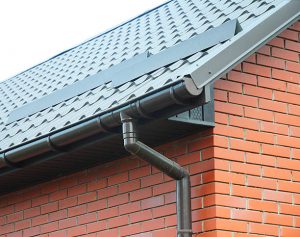 The main purpose of gutters and downspouts is to collect rainwater and debris, then efficiently redirect that water away from your home. If gutters or downspouts are loose or out of place, it can cause water to pool around the base of your home. Keep an eye out for puddles of water near your home’s foundation to ensure that it doesn’t seep into the foundation. If you discover water pooling around the base of your home, you may need to extend your downspout. An extended downspout will help redirect water further away from your home to avoid seepage.
The main purpose of gutters and downspouts is to collect rainwater and debris, then efficiently redirect that water away from your home. If gutters or downspouts are loose or out of place, it can cause water to pool around the base of your home. Keep an eye out for puddles of water near your home’s foundation to ensure that it doesn’t seep into the foundation. If you discover water pooling around the base of your home, you may need to extend your downspout. An extended downspout will help redirect water further away from your home to avoid seepage.
Foundation Issues
To reduce chances of your home suffering damage, ensure your home’s foundation is in good condition. Regularly keep an eye out for any cracks in the foundation and repair them as soon as possible. Cracks in the foundation of your home can lead to moisture seepage and slow leaks. Slow leaks can cause just as much damage as a flood if left unattended.
Roof Issues
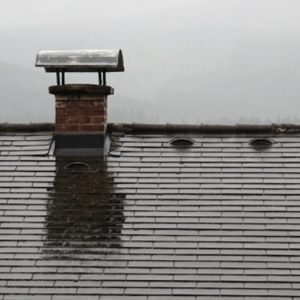 Issues with your roof can lead to roof leaks and water damage. You should be regularly checking your roof to make sure that there are no loose or missing shingles. Be aware that these areas with loose or missing shingles may be more susceptible to damage. Repair these issues right away to avoid potential damage.
Issues with your roof can lead to roof leaks and water damage. You should be regularly checking your roof to make sure that there are no loose or missing shingles. Be aware that these areas with loose or missing shingles may be more susceptible to damage. Repair these issues right away to avoid potential damage.
Issues With Appliances
Appliances that use a lot of water such as dishwashers and washing machines are a great help with household chores. However, appliances can be susceptible to leaking or breaking down at any given time. If you have noticed your dishwasher, refrigerator, or washing machine leaking, clean up the water immediately. Leaving it stagnant gives the water a chance to seep into more cracks in your home, ultimately leading to water damage.
Basement/Crawl Space Moisture
Basements and crawl spaces are naturally prone to moisture buildup that encourages elevated humidity leading to potential water damage. Employing the use of a properly rated dehumidifier can help to keep the relative humidity below 50%.
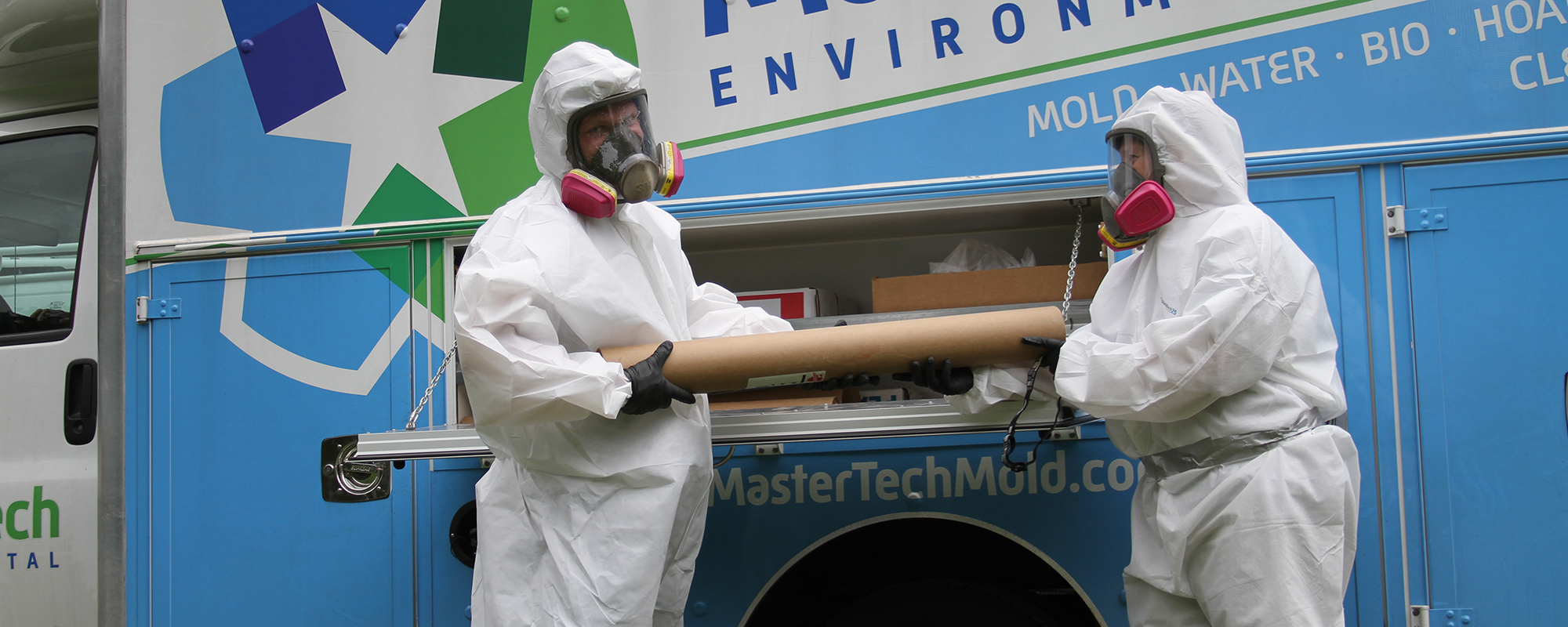 Looking For Signs of Water Damage
Looking For Signs of Water Damage
Water damage in your home is bad enough as is, but if it goes unnoticed, it can cause even more issues in your home. Issues such as mold can arise and cause problems for you, your home, and your family. It is important to know what to look for when looking for water damage so that nothing is left unattended.
Physical Signs
All moisture within the home has the potential to cause damage. Still water and condensation can lead to water damage if left unattended. Ensure you are wiping away any spills or condensation that has formed.
Staining
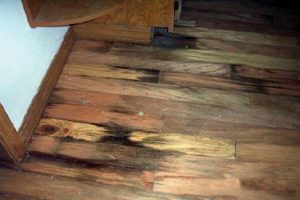 Dark staining on wood or other materials of your home are a telltale sign of water damage. Ceilings and hardwood are areas where damage is more visible. The obvious discoloration in the area is a dead giveaway. You might also notice slight bubbling or indents in the paint, indicating that water is seeping beneath the paint. Thoroughly look throughout the entire home for any visible indicators of water damage.
Dark staining on wood or other materials of your home are a telltale sign of water damage. Ceilings and hardwood are areas where damage is more visible. The obvious discoloration in the area is a dead giveaway. You might also notice slight bubbling or indents in the paint, indicating that water is seeping beneath the paint. Thoroughly look throughout the entire home for any visible indicators of water damage.
Odor
A musty, dank odor can be an indicator of water damage. Do your best to locate where the odor is originating from; this will help to locate the source of the water damage.
Water damage can be incredibly consequential. It can lead to extensive property damage, compromised structural integrity and potential mold problems. Mold can make your home a potentially unsafe environment for you and your family to live in. It’s a lot easier to prevent damage than it is to remediate it. Ensure that you are doing all you can to avoid water damage. It will save you the trouble in the long run.


